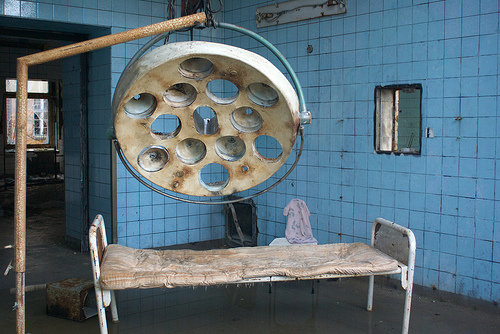MOSCOW, September 12 – RAPSI, Ingrid Burke. An investigation into the allegations that ethnic Albanian rebels harvested the organs of prisoners of war for sale on the black market in the aftermath of the Kosovo conflict may lead either to prosecution in front of the international judges already serving the European Union Rule of Law Mission in Kosovo’s (EULEX), or to the creation of a special tribunal, EULEX Special Investigative Task Force [SITF] spokesman Juri Laas told RAPSI Wednesday.
He emphasized, however, that it’s too early to state with confidence what will ultimately arise from the investigation.
RAPSI reached out to the SITF after state media outlet Radio Television Serbia (RTS) aired a program Monday featuring a man who approached Serbia’s War Crimes Prosecution unit claiming to have directly participated in the rumored organ extractions while serving as a Kosovo Liberation Army (KLA) soldier in 1999.
Having been granted protected status due to the sensitivity of his case, the witness’ face was blurred and his voice obscured during the interview.
He recounted a particularly brutal scene where he claims to have personally removed the still-beating heart of a 19- to 20-year-old non-Albanian man who moments earlier had been begging for his life. At one point during the operation, he claims to have fashioned a surgical tool from a Kalashnikov bayonet mid-operation. He then claims to have transported the heart in an ice box to the Tirana airport, where it was given to a man who had emerged from a private plane marked with a Turkish flag.
When asked about the protected witness, Laas explained generally that the SITF is continuing to, “[speak] with people who have information relevant to the investigation,” but was unable to provide any specific details on the pending investigation due to the EULEX policy restrictions.
If the witness is credible, he will prove key to the materialization of judicial proceedings against the long-rumored, yet thus far unsubstantiated organ-trafficking claims.
The SITF emerged under the competence of EULEX from the fallout of a report released by the Council of Europe’s Dick Marty chastising the relevant international authorities for failing to act, despite the purported existence of evidence, on “serious crimes had been committed during the conflict in Kosovo, including trafficking in human organs, crimes which had gone unpunished hitherto and had not been the subject of any serious investigation.”
Although organ-harvesting theories have endured for as long as the conflict itself, former UN Chief Prosecutor for the International Criminal Tribunals in Rwanda and for the Former Yugoslavia Carla Del Ponte breathed new life into the allegations through her personal memoir, which was published in 2008.
The outspoken Del Ponte explained that while serving in her official capacity with the International Criminal Tribunal for the former Yugoslavia (ICTY), her office received information “from a team of credible journalists” claiming that in the summer of 1999, between 100 and 300 KLA abductees were transported into northern Albania. The memoir explains, “some of the younger, fitter captives, who were kept well fed, examined by doctors and never beaten, were transferred to other holding facilities.”
The abductees were then allegedly taken to a room where journalists reported that doctors extracted vital organs in an improvised clinic, which were in turn transported to Tirana’s airport for sale on the black market.
According to the memoir, these prisoners were made aware of what lay ahead while in detention: “Victims deprived of only their first kidney were sewn up and confined again inside the shack until they were killed for their other vital organs; in this way, the other captives in the shack learned of their approaching fate; and they reportedly pleaded in terror to be killed immediately. “
Dick Marty referenced the memoir on numerous occasions in the course of his report.



